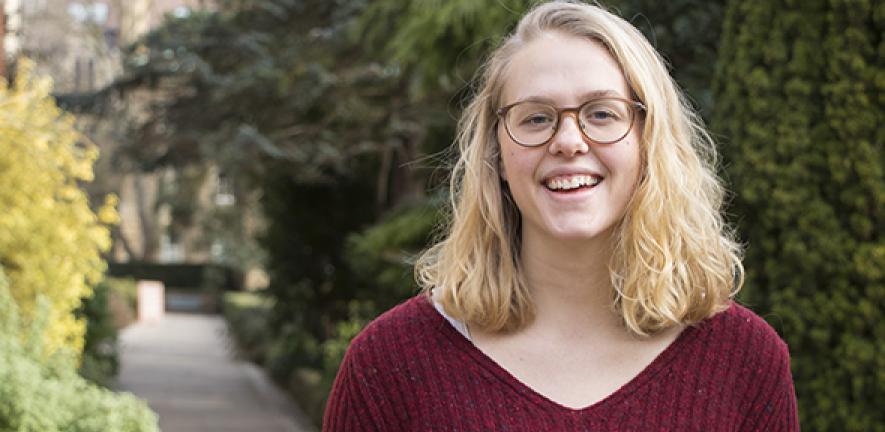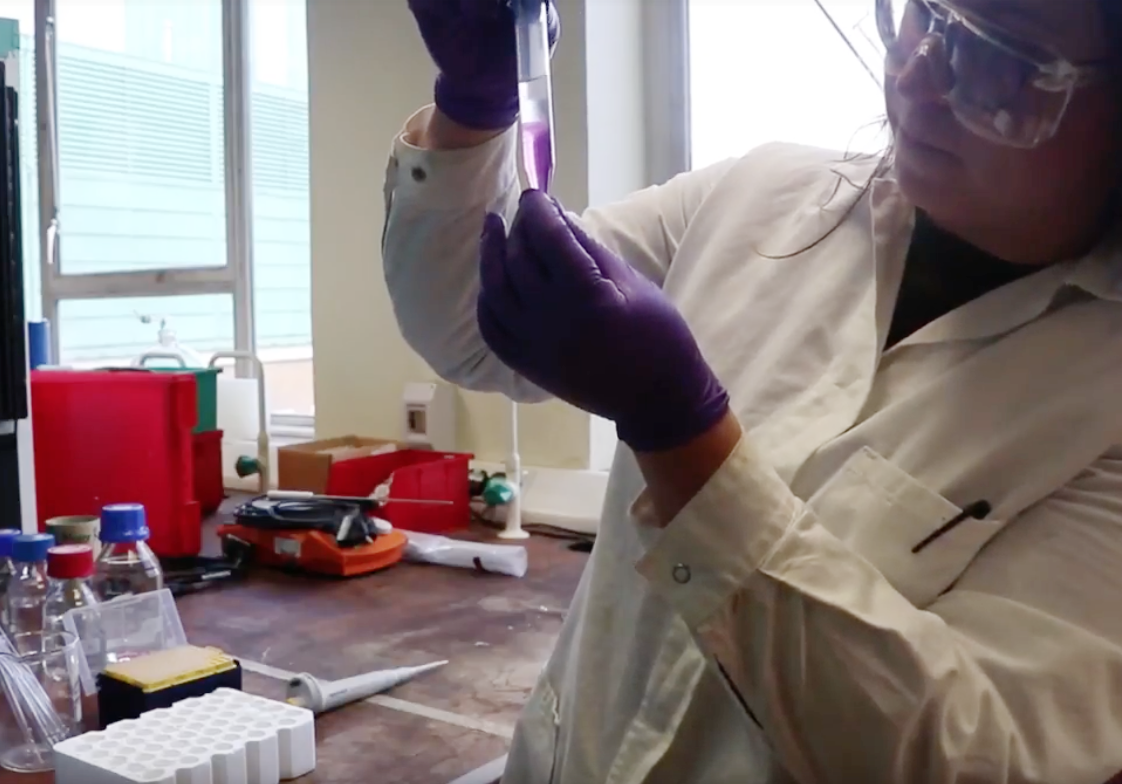
"My experience here at the University of Cambridge has been incredibly positive," says Angela Grommet, a fellow Chemistry PhD student. "I really enjoy my research – in fact, I have more fun doing my research than any PhD student has a right to have!"
The two women are at different stages of their PhD studies – Anna (pictured above) is in her second year, Angela (pictured below) in her fifth. But both are highly motivated by the need to address the world's energy challenges. They both relish being involved in the leading-edge research into these challenges that is being conducted here in the Department of Chemistry.
And both hope that by talking about it, they will encourage other women into science. "I am enjoying my research so much," says Angela, who is studying supramolecular chemistry, "that I am now feeling a pull towards academia as a career choice. I'm well aware that this is the stage – the transition from PhD student to postdoc to independent researcher – where women tend to fall off the ladder. But my experience here has been that my gender does not matter. My group is about 50:50 men and women, and all I have had here is support."
She and Anna have both given interviews to their college, Pembroke, as it celebrates February's International Day of Women and Girls in Science.
"I have more fun doing my research than any PhD student has a right to have." Angela Grommet.
Anna Gunnarsdottir is working in Professor Clare Grey's research group, studying lithium metal, an attractive component for next-generation electric batteries. "The relevance of my research keeps me motivated on a daily basis," she says.
"I’ve always been interested in energy storage and known that I want to engage in research that has practical implications. Finding ways to store energy more efficiently and safely will be vital if we are to be able to reduce greenhouse gas emissions and integrate renewable energy into our electrical grid."
"The relevance of my research into ways of storing energy more efficiently and safely motivates me every day." Anna Gunnarsdottir.
Angela too is focused on energy research. She works with Professor Jonathan Nitschke on creating supramolecular 'cages' that can be used to separate and transport chemicals, for example in industrial processes like refining petroleum. And she is very clear on the huge value that this technique can offer.

"In the USA alone, about a quarter of all the energy consumed by the country is devoted to industrial processes, and half of that is used in separating chemicals," she says. "If we are able to run these processes without using energy, there would be huge savings both in cost and in the impact on the environment."
Both hope their message will encourage other women to consider science as they find it a very rewarding path to follow.
"I love working with such a diverse group of people as my research group; we come from different backgrounds and experiences but work together as a team," says second-year PhD student Anna Gunnarsdottir, who hopes ultimately to return to her native Iceland to work in industry-relevant research. "And while research is not always enjoyable, that’s part of its charm. When you have been struggling to set up an experiment for hours, days or even months and it finally works, that bliss is definitely worth it."

